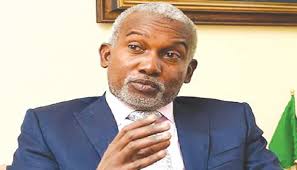Standard Chartered Bank Nigeria Limited has called on African countries to take advantage of emerging global trade shifts by strengthening regional value chains and reviewing their exposure to international markets. The bank made this call during a webinar titled “US Tariff War: Implications for the Nigerian Economy and Business,” held to explore the impact of the United States’ recent tariff policies on African economies.
Speaking at the virtual event, which attracted over 600 participants, Chief Economist and Managing Director of Global Research at Standard Chartered, Razia Khan, said the US tariff changes reflect broader global realignments that could significantly affect Africa. According to her, one of the continent’s biggest challenges is the low level of trade among African countries, driven largely by the lack of economic complementarity between states.
Khan stated, “One of the major challenges remains the lack of complementarity among African states, which continues to drive low intra-African trade volumes. However, by reassessing trade exposure and strengthening regional value chains, African countries can transform these emerging risks into opportunities for long-term growth.”
The event brought together experts from both the private and public sectors, including trade specialists and policy influencers, who discussed the potential impact of US protectionist policies on Nigeria’s economy and proposed strategies for business survival and adaptation.
Chief Executive Officer of Standard Chartered Bank Nigeria Limited, Dalu Ajene, said the webinar was designed to equip Nigerian businesses with critical knowledge for navigating the rapidly evolving global trade environment. “The goal of the webinar was to provide a comprehensive understanding of the current trade dynamics, identify potential risks, and discuss strategies that can help businesses in Nigeria adapt and thrive amidst these changes,” Ajene explained.
A key part of the session featured a panel discussion involving Mahdi Ahmed, a representative from the Trade & Exchange Department of the Central Bank of Nigeria; Monish Modi, Group Chief Financial Officer of African Industries Group; and Dr. Muda Yusuf, former Director-General of the Lagos Chamber of Commerce and Industry.
Other panellists included Dr. Bamidele Ayemibo, Lead Consultant at 3T Impex Trade Consulting Limited; and Simon Umegbu, Trade and Working Capital Products Manager at Standard Chartered Bank Nigeria. They examined the implications of the new US trade policies for Nigeria’s import-dependent sectors and shared practical approaches for businesses to reduce external trade shocks.
Also speaking during the session, Ibiyemi Okuneye, Head of Trade and Transaction Banking for Nigeria and West Africa at Standard Chartered, stressed that the current global tariff tensions could present growth opportunities if African countries are strategic. “The U.S. tariff war is not just a challenge; it presents opportunities for Nigeria and Africa. This is the time for firms to rethink their supply chain strategies to ensure resilience and continued business growth,” she noted.
According to Okuneye, businesses in Nigeria and across the continent can benefit from increasing intra-African trade, particularly under the African Continental Free Trade Area (AfCFTA) framework. She added that with the right policies, partnerships, and digital tools, African firms could reduce dependency on volatile external markets and enhance local production.
The webinar is the first in a new series of thought leadership events being organised by Standard Chartered Bank to help African businesses respond proactively to global economic changes. Through these sessions, the bank plans to offer clients actionable insights and tools to remain competitive and sustainable.
Standard Chartered also reaffirmed its commitment to supporting trade finance and helping businesses unlock value through expert guidance, advanced digital platforms, and strategic alliances. The bank said it will continue to play a key role in driving cross-border trade and promoting financial resilience across the continent.
